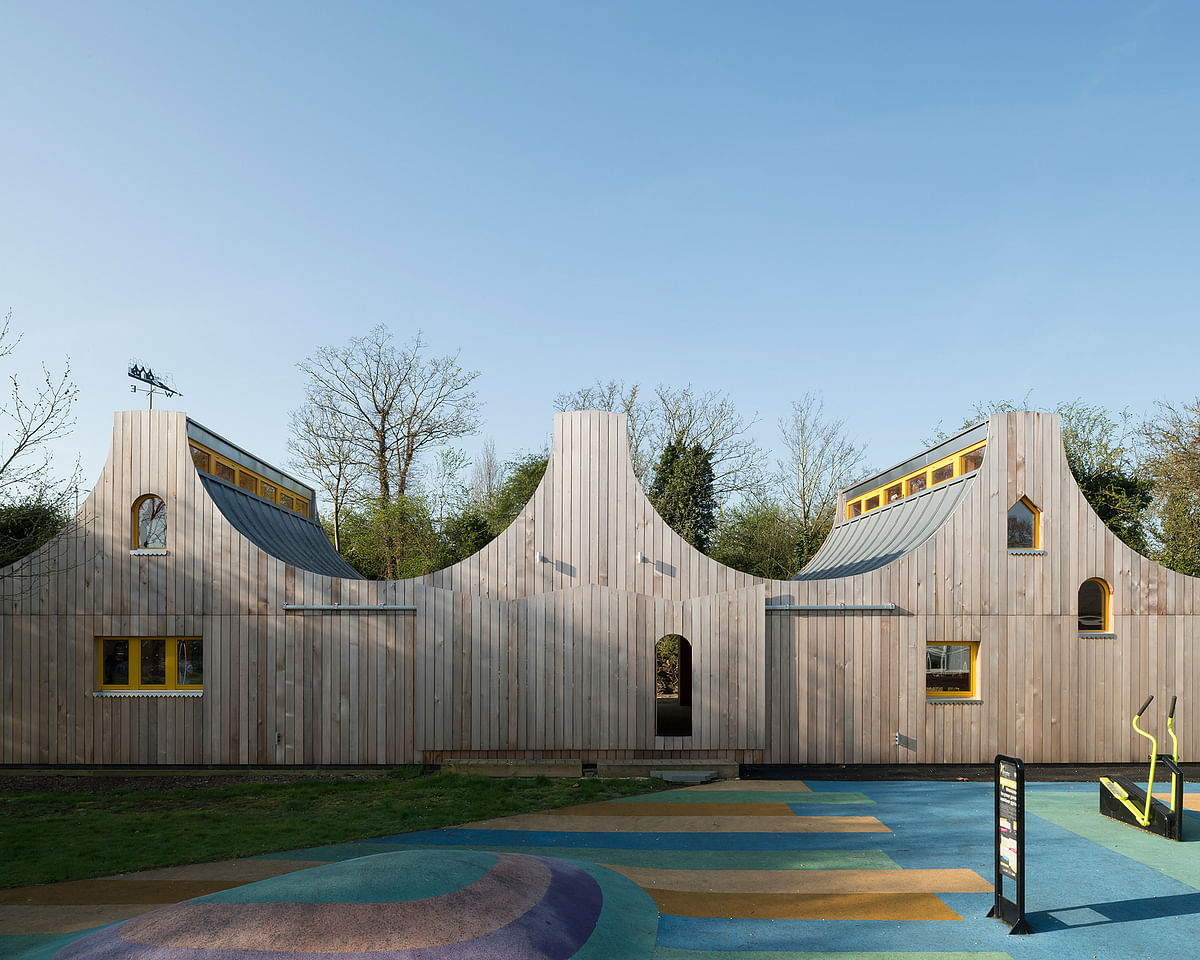
Seven projects shortlisted for 2018 Stephen Lawrence Prize
By Justine Testado|
Thursday, Jul 26, 2018
Related
Today, RIBA announced seven projects that made it onto the 2018 Stephen Lawrence Prize shortlist. Celebrating its 21st anniversary, the honorable prize distinguishes notable architectural projects with a construction budget of less than £1 million. The Marco Goldschmied Foundation established the yearly prize in 1998, in memory of aspiring young architect Stephen Lawrence.
“The shortlist ranges from new and converted housing to a moving memorial, from education to hospitality. Each project has produced outstanding architecture fit for such a long-standing award,” said Stephen Lawrence Prize founder Marco Goldschmied.
The winner will be announced during the RIBA Stirling Prize party in Camden, London on October 10.
Check out the shortlist below.
Belvue School Woodland Classrooms, London by Studio Weave Ltd

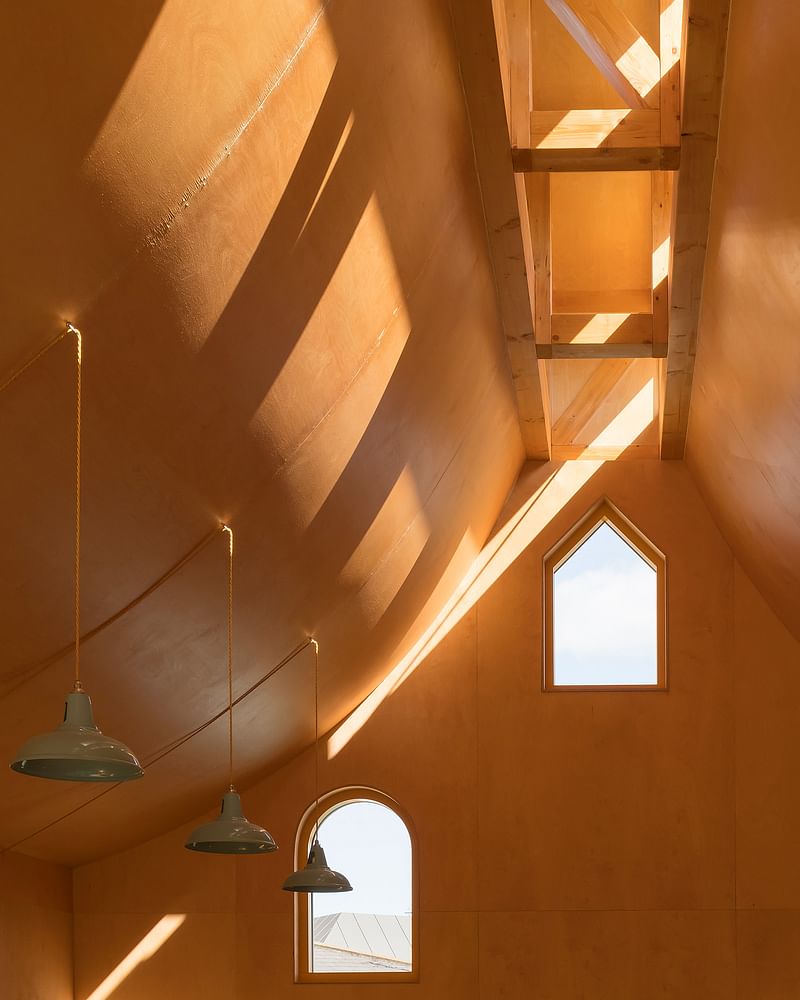
Excerpt from jury comments: “Belvue School is a secondary school for those with severe learning difficulties and a range of other needs. The school sits next to a small scrub of land with a few trees, shrubs and undergrowth. Although small in extent and hardly luxurious in planting, nonetheless it represented a glimpse of nature with which the pupils, who mainly live in blocks of flats nearby, were otherwise unfamiliar. The school was to be allocated two Portakabins to meet its need for more space but the head-teacher decided that her pupils deserved better than that. She realized that through design a much more imaginative solution could be found, that would provide a rich and stimulating learning environment for her students. To achieve this, she raised the money for the building independently and so the design direction was under her control and not hidebound by institutional limitations.
Her brief was to create 150 square metres of extra curriculum space, with a domestic quality and intimate scale. Studio Weave developed a collective narrative with the pupils, to open up imaginative ways of engaging with the outside. Through a series of story writing and design workshops the boundary between the playground and wood was identified as the border between familiar school territory and the magical mysterious world beyond, with the new Woodland Classrooms acting as the gatehouse and gateway to this magic world. [...]”
Bethnal Green Memorial, London by Arboreal Architecture
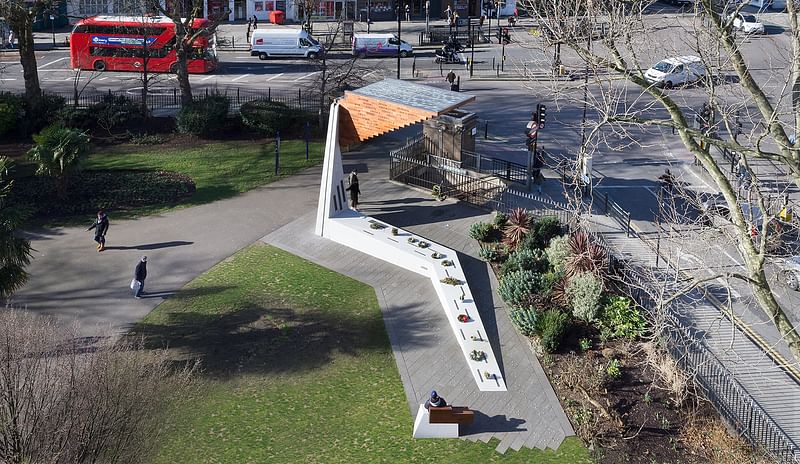
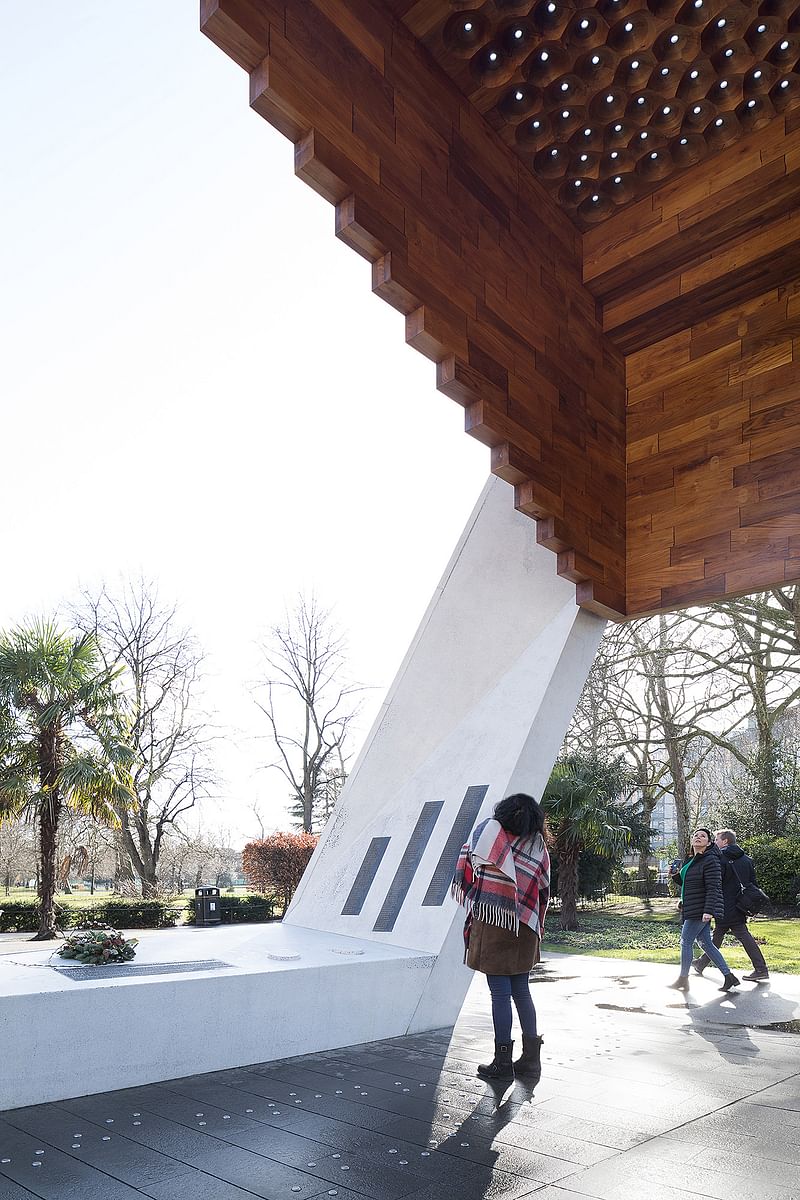
Excerpt from jury comments: The Bethnal Green Memorial was built to commemorate the 173 people who died in the Bethnal Green Tube station during the war. “In 2006, 63 years after the event, Harry Paticas, a Bethnal Green architect noticed a plaque that had been discretely fixed to the stair in 1993 quietly acknowledging the deaths. After some research, he felt strongly that a more fitting memorial was needed. [...]
The concept for the design is that of an inversion of the negative space within the stairwell where the crush occurred, lifted up and to one side of the stairwell in the corner of the park. The hollowed out negative stairwell is built from sustainably sourced solid teak with conical shaped holes in the roof that at midday throw a light shaft toward the stairwell where the tragedy occurred, one for each life lost. A polished concrete plinth supports the teak inverted stair, and folds across the site with multiple bronze plates fixed to it with extracts from the accounts of survivors and victim's families. The plinth twists and leads to a bench where those who have just read the accounts can pause and reflect.”
Dartmouth Park House, London by AY Architects
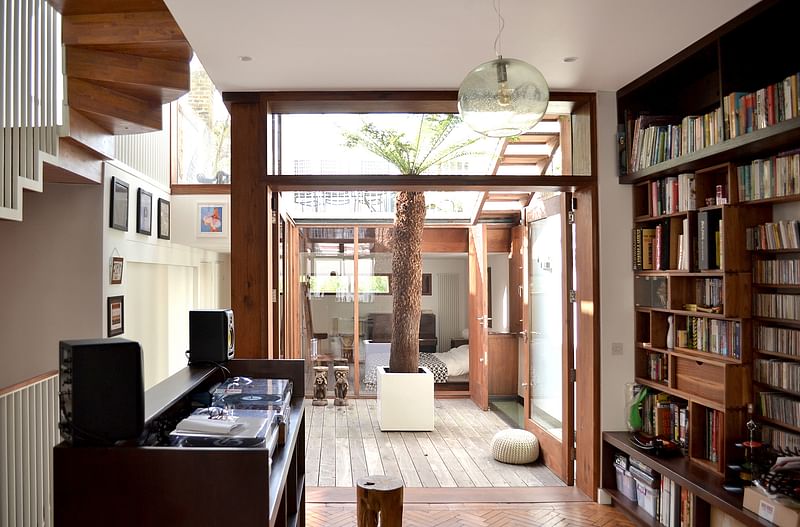
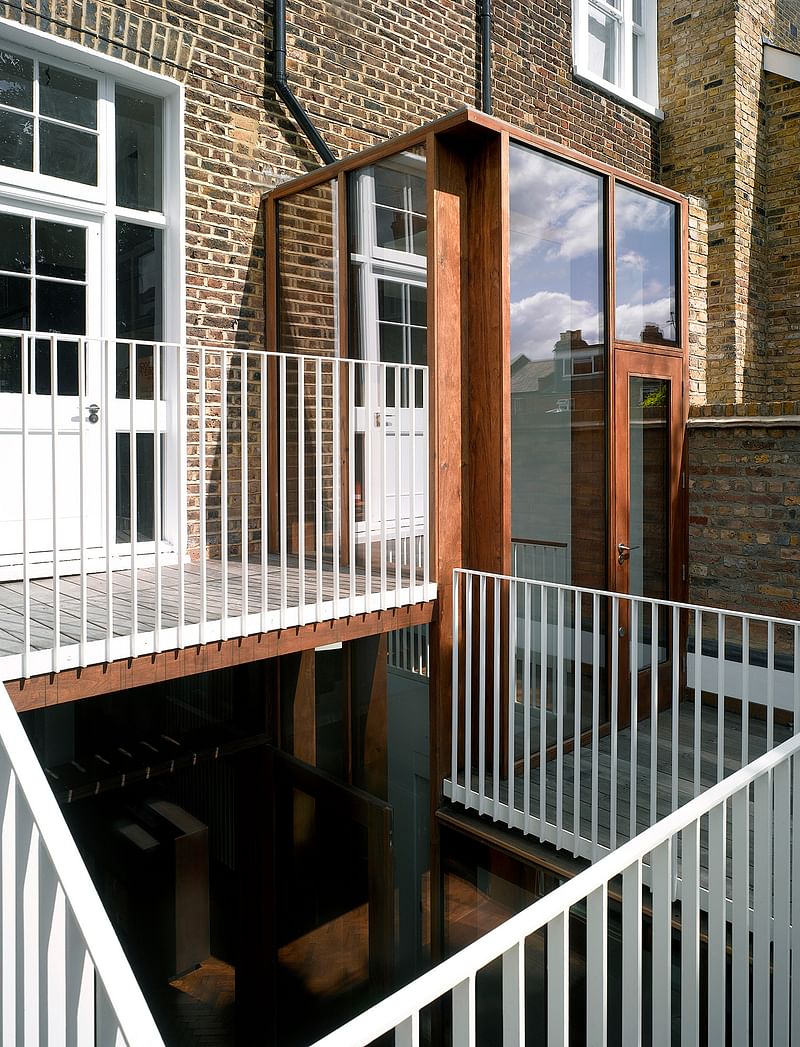
Excerpt from jury comments: “Beginning as a modest conversion of an over-developed Victorian terraced house the project became an ambitious redevelopment of the entire building. By reflecting the client's personal travels and interests, AY Architect Partners have created an unusual and exotic home.
The process of opening up the building to let in daylight has created a series of light airy spaces linked by a courtyard, staircases and terrace. A 9-meter-high, 3-floor void is a spectacular intervention containing a white-steel and mahogany staircase with crafted balustrade, extending from the basement to the second floor in a series of straight flights, curves and bridges. The ground floor has mahogany shelves and bespoke furniture, which fit well with the reclaimed oak parquet floor and leads to the timber-floored internal courtyard. This connecting space acts as an outdoor room with a centrally placed tree fern providing shade.
The guest bedroom and bathroom extension on the opposite side of the courtyard is given privacy by the use of structural hardwood screens, which were prefabricated, partially assembled and shipped from Nicaragua (a connection from the clients’ travels). The upstairs terrace, with views of neighboring gardens, sits above the guest bedroom and is linked by the main staircase to the house and circles around the courtyard to a staircase to the kitchen.”
Five Acre Barn, Suffolk by Blee Halligan
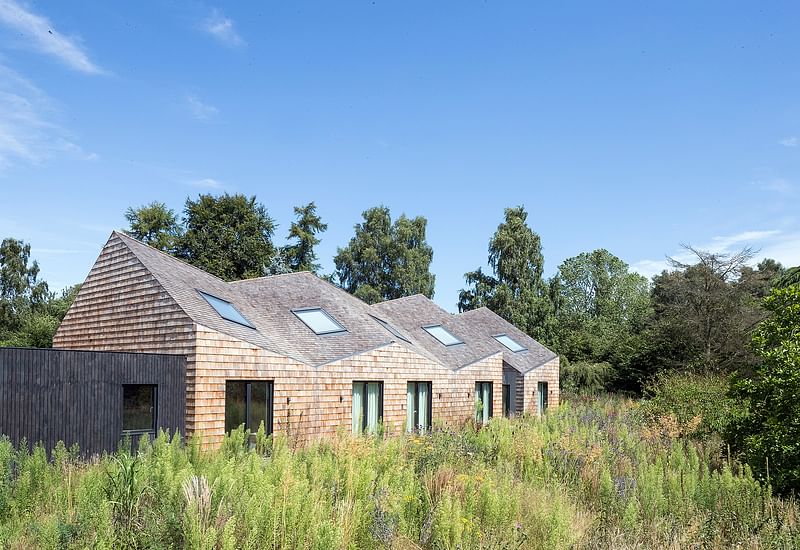
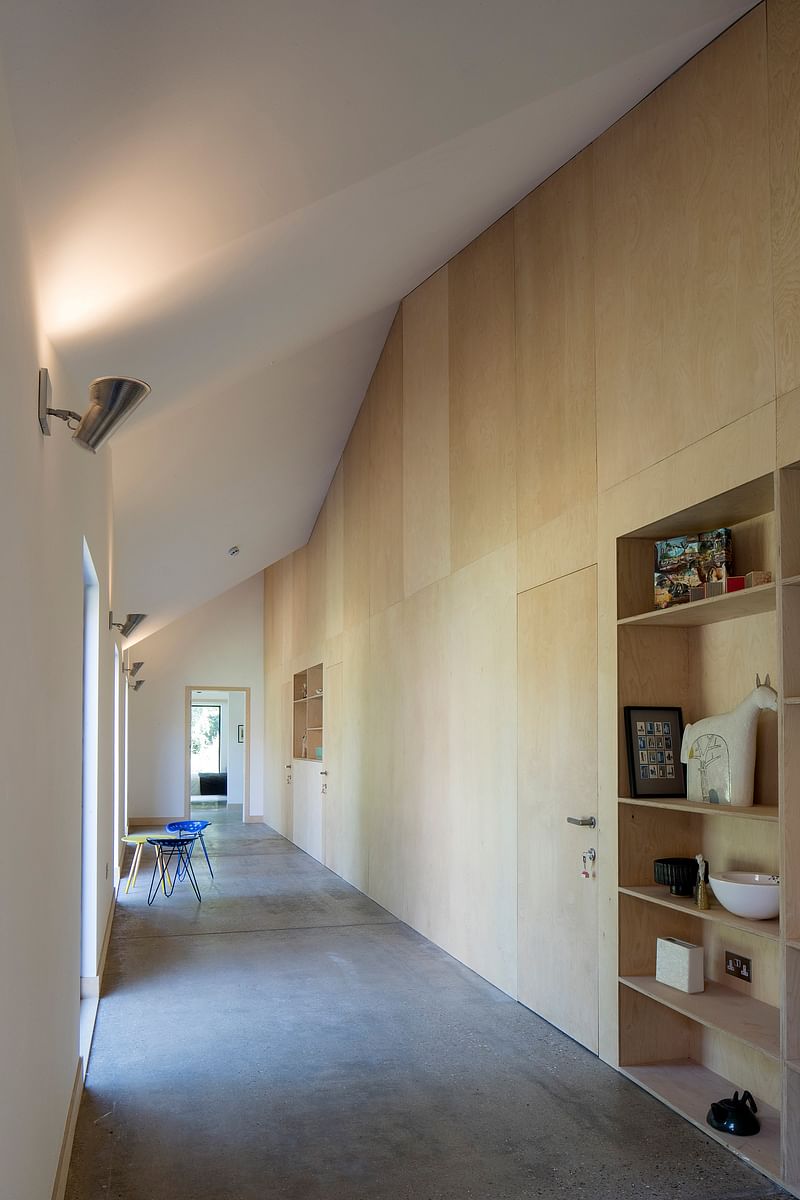
Excerpt from jury comments: “The Five Acre Barn is an original building form that is well suited to this new type of brief. The scheme provides new build; ‘bed and breakfast’ accommodation for five visitors (individuals, couples or families) who can choose to live and dine together for their stay, or use their room as a base to travel around this scenic area of Suffolk, Aldeburgh being the nearest town to the site. The new building has a stepping, organic form, clad in shingles, that ‘wriggles’ among the trees in a mature garden (the five acres of the title). Each room is expressed in the roof form and each room has its own timber deck projecting out into the landscape. The new building is directly linked to a retained workshop building.
This simple brick building has been repaired and enhanced in the most minimalist way (the addition of an aluminium gutter, roof repairs and the odd new window) so that when you step inside, it is a surprise that it is a single volume of stylish kitchen/ dining room/ lounge. Everywhere the finishes are minimum but the furniture (mid-century classics), pottery, prints light fittings etc, bring a Shoreditch-style (and purchasing power) to Suffolk.”
Old Shed New House, Yorkshire by Tonkin Liu
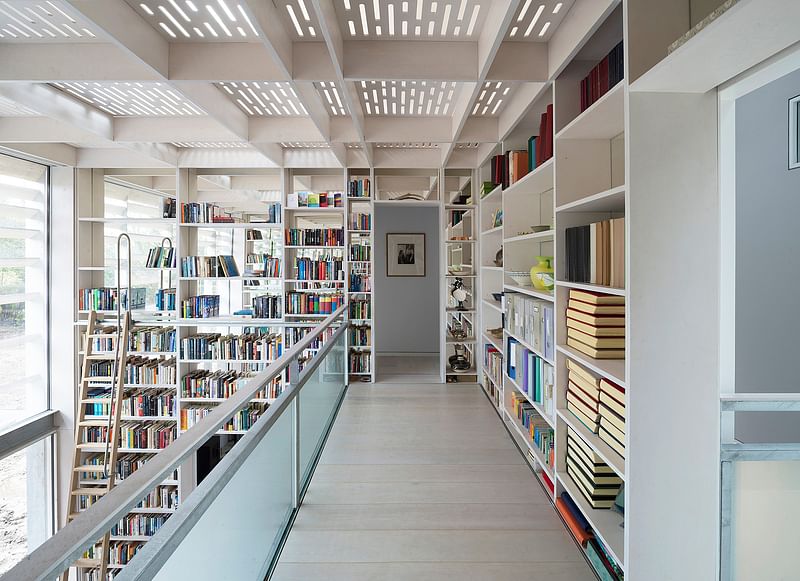
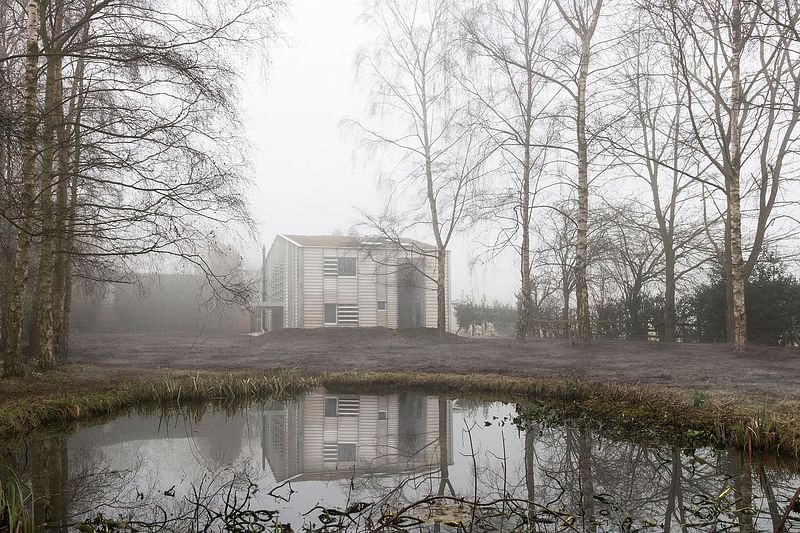
Excerpt from jury comments: “The clients had spent several years looking for a quiet site to build their retirement home, before they found a farm shed located in a wild garden, on the edge of a small village in North Yorkshire. Discovering the site with their son Greg, now Associate at Tonkin Lui and Mike Tonkin, they sought to pull the landscape into the building’s form. A long double height gallery maintains the tree-lined approach and a tall library, bounded by mirror-backed shelving evokes the copse of silver birch found of the site.
Walking into the library through a sliding door from the living room brought gasps from the Awards Jury. It is the heart of the home and a showpiece for a lifetime’s collection of books. Clever use of light and mirrors gave the impression of an art piece itself. Otherwise it Is a modest 3-bedroom house, build cost effectively, but with exquisite detailing throughout inside and out. The house follows a passivhaus strategy of high insulation, high air tightness, complemented by mechanical ventilation with heat recovery.
As the architects say ‘The house is a journey of interconnected spaces that alternate between the grand and the intimate..... it is part country cottage, part classical villa.’”
Red House, London by 31/44 Architects
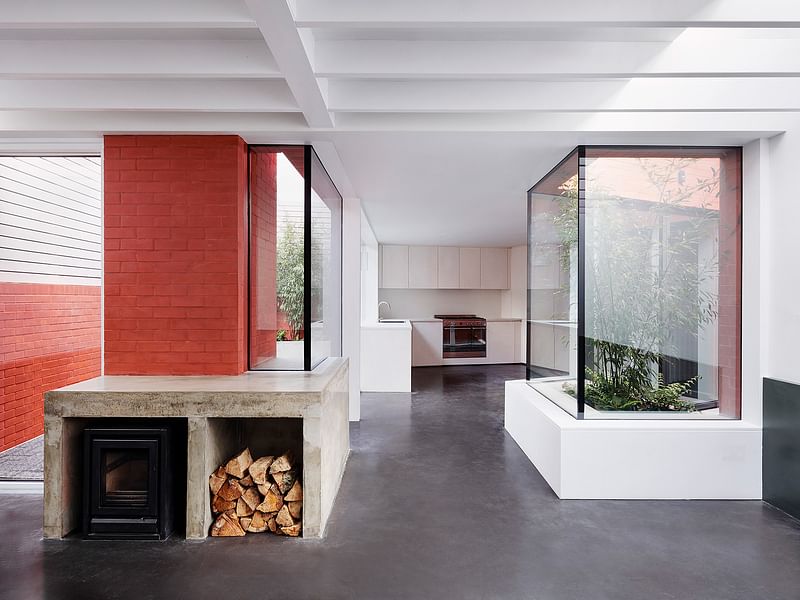
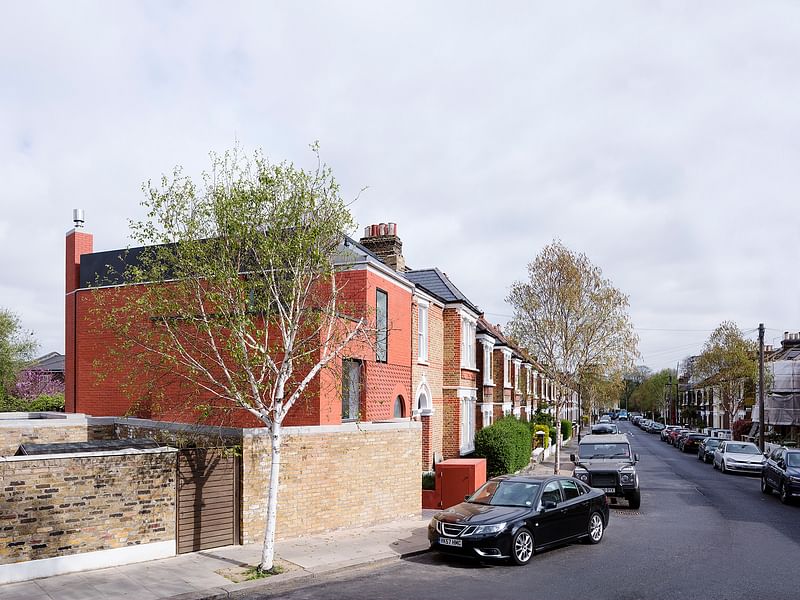
Excerpt from jury comments: “A new-build home which is an assertive piece of architecture, justly confident of its place in the street without being disrespectful, and sharing something of the spirit, solidity, and decoration of the Victorian surroundings without veering towards any kind of artificiality. The scheme matches the size, scale and character of the surrounding two-storey dwellings, while providing a 137 square metre split-level three-storey contemporary home. The site the architects had to work with was awkward in shape and levels, and they had to deal with the challenge of privacy.
As the end of the terrace the site is an unusual shape with an imposed kink in the road and angled flank of the adjacent house. The architects have inventively carved into the space a series of intimately angled living spaces sprinkled with small glazed courtyards, drawing light and ventilation deep into the low level kitchen, dining and living spaces. These 'pushed and pulled' series of visually connected spaces resolves the complex geometrical challenge creating a homely space. A timber stair, which greets you at the entrance and stretches the length of the home is detailed with shadow gaps and vertical lines of cladding helping light travel down the building.”
White Heather House, Southend-on-Sea by SKArchitects Ltd
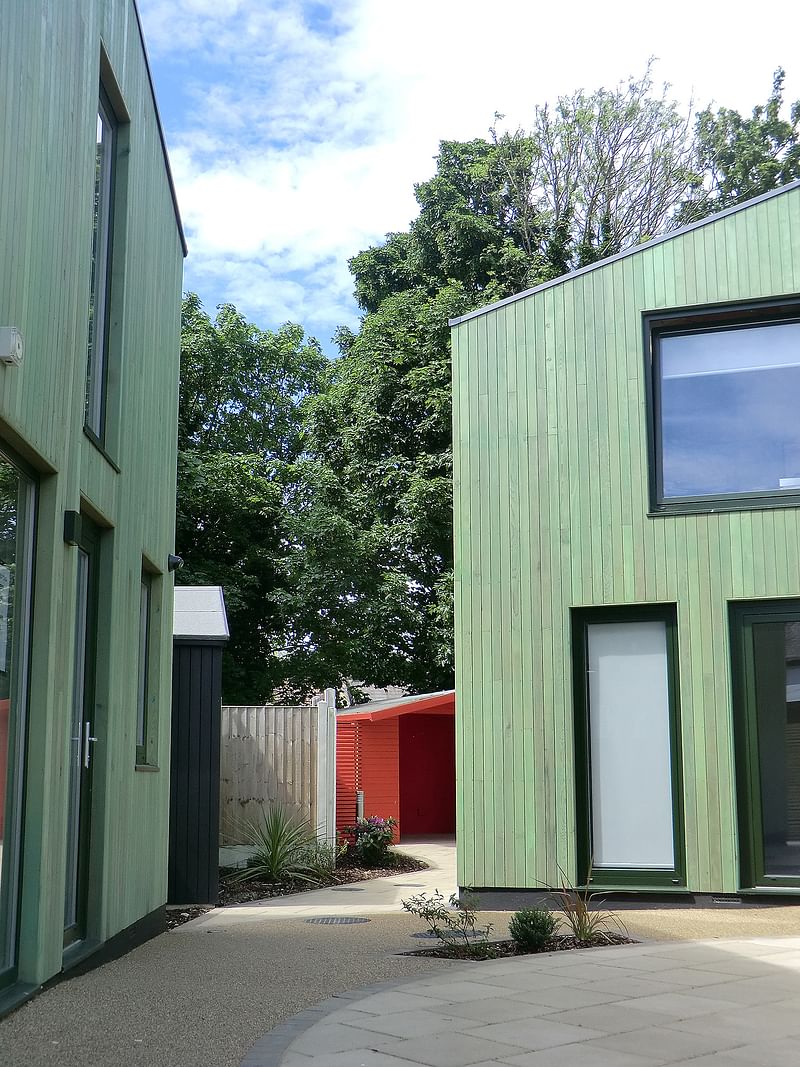
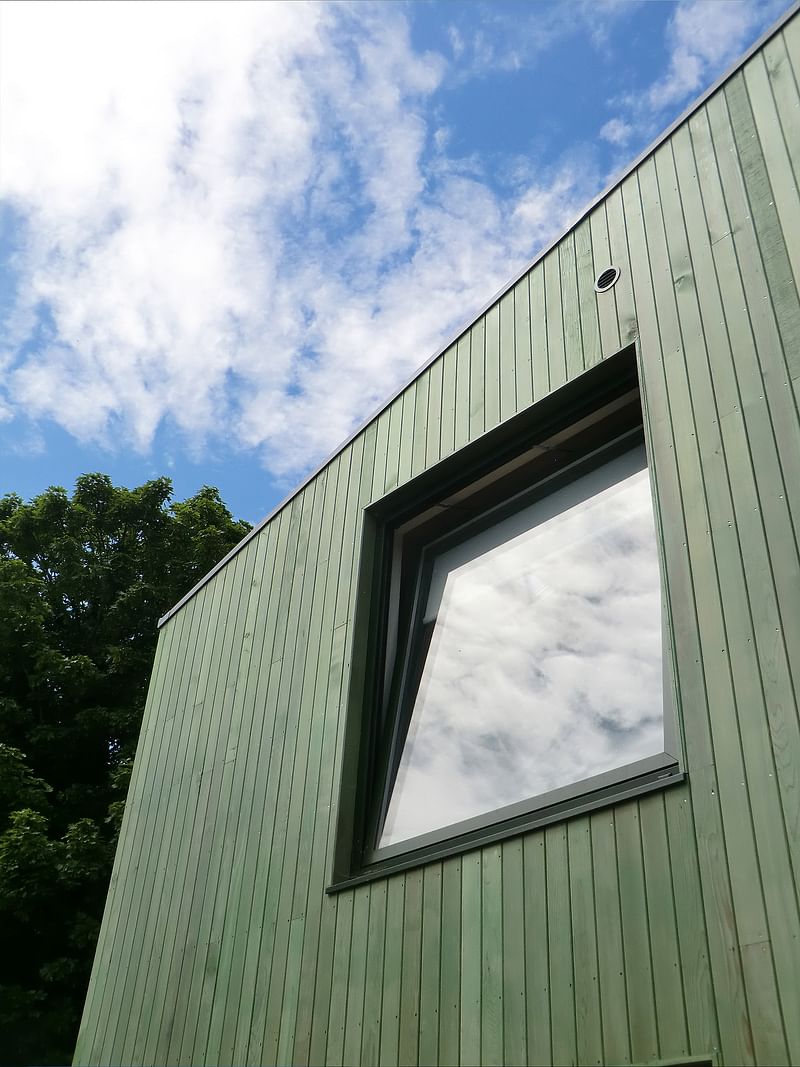
Excerpt from jury comments: “This is a wonderful example of where the architect, Steve Kearney, would just not let a project fail. He formed his own construction company, overcoming early setbacks, to deliver the project to a tight budget and timescale. This is a project that is really changing lives, providing inspiring emergency homes for vulnerable women in the ‘red light’ district of Southend.
The layout of the new three blocks around a central space solved the problem of a very restricted site. It creates an appropriately sheltered, private and secure environment for residents who draw support from each other and want to distance themselves from the outside world. The buildings (and the reclaimed garden sheds) are colorful, simply built and carefully placed to maximize the sense of space (there is even a quiet outside space for the staff) on a left-over piece of urban back lot. The building process was complicated too, necessitating bringing materials on to site by hand on occasion. This sort of project makes us all proud to be architects.”
All photos courtesy of RIBA.

RELATED NEWS The Houseboat wins 2017 Stephen Lawrence Prize; Bedales School named RIBA Client of the Year

RELATED NEWS 2016 Stephen Lawrence Prize awarded to House of Trace


Share
0 Comments
Comment as :